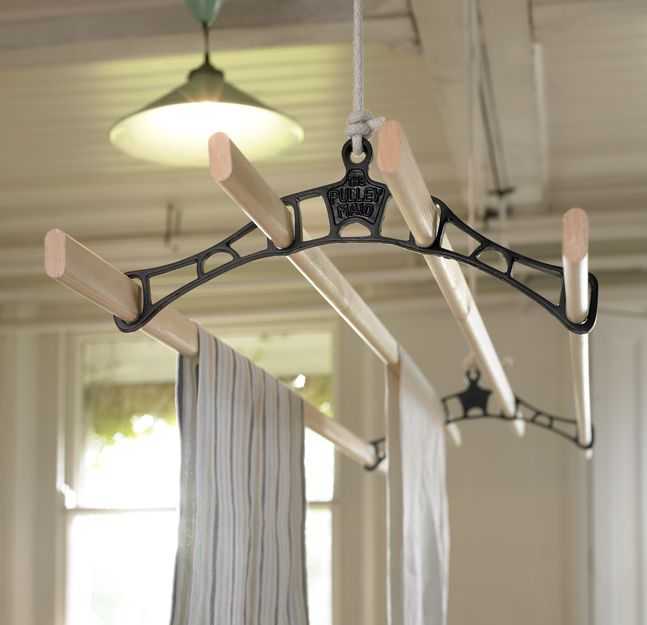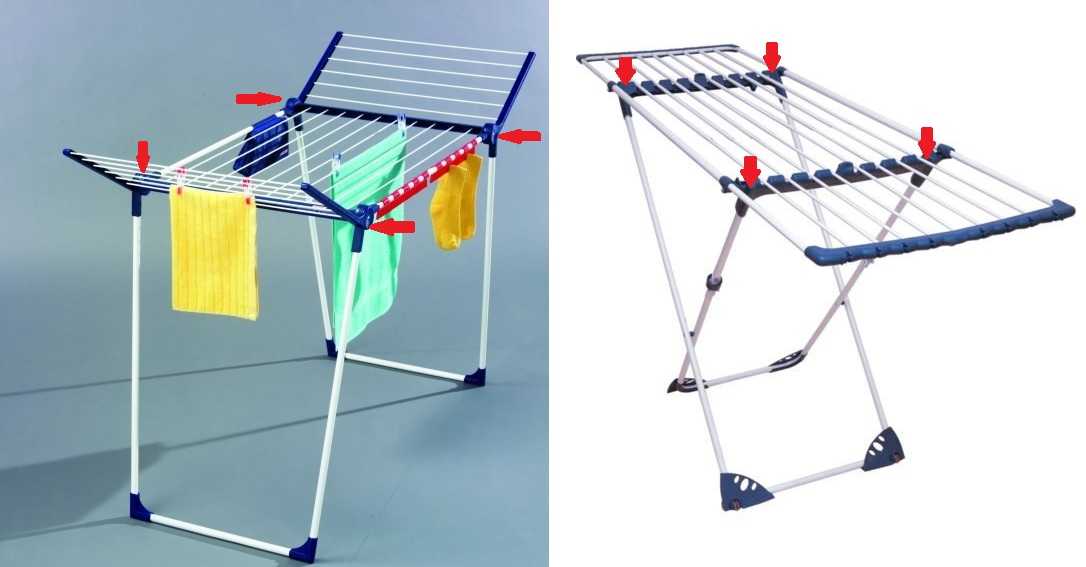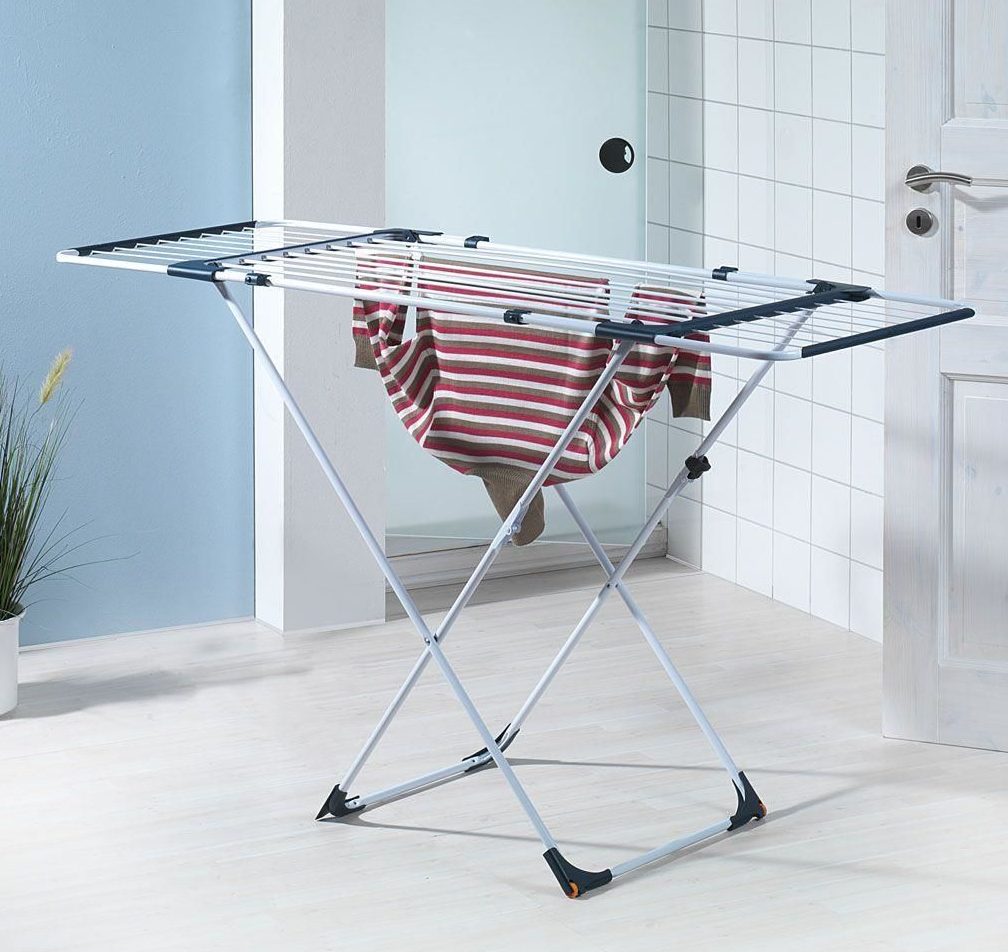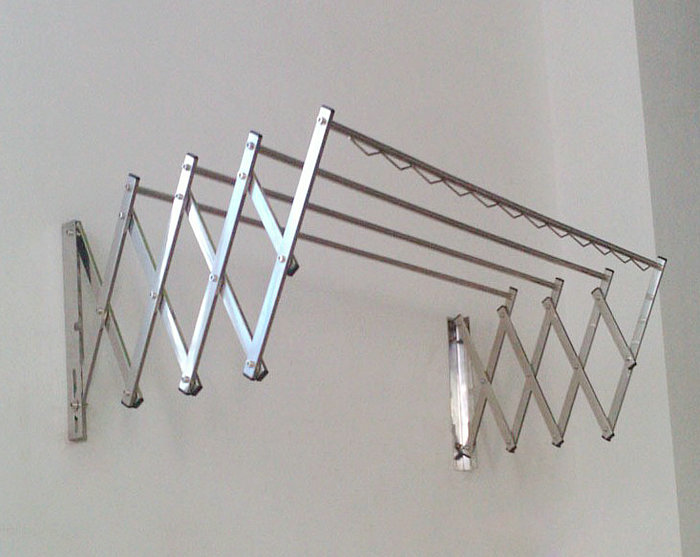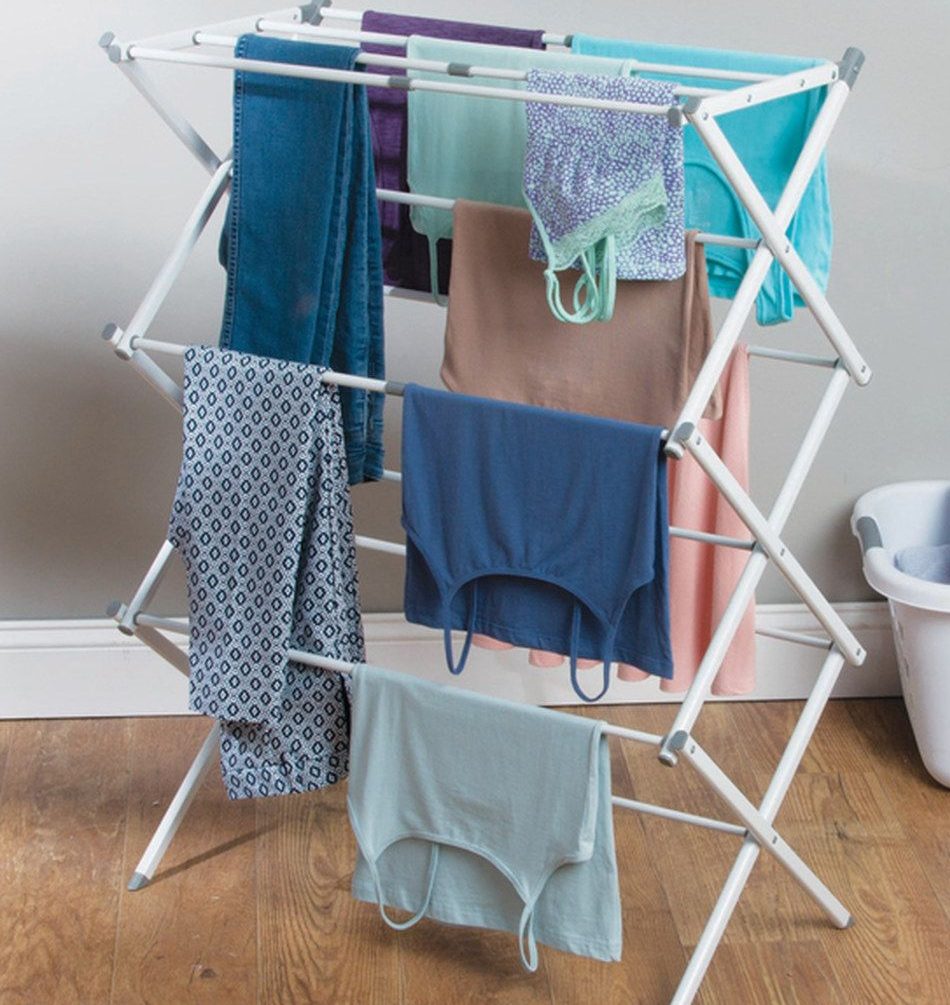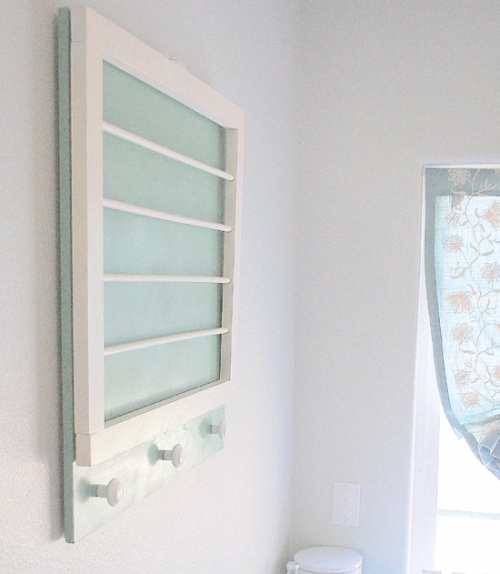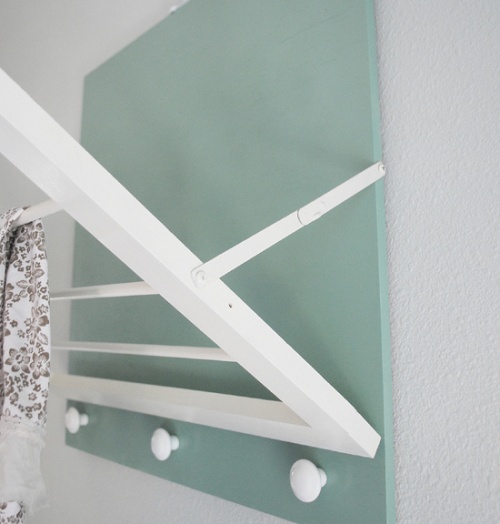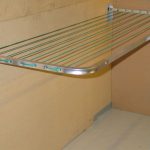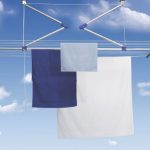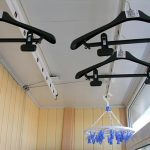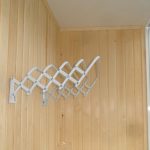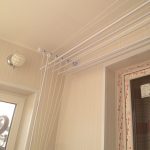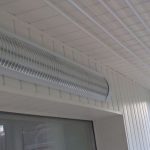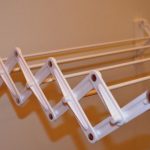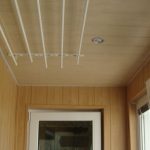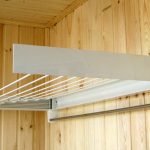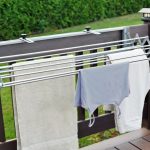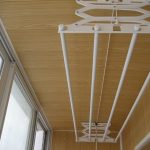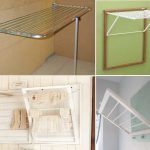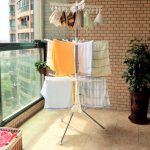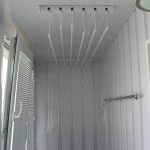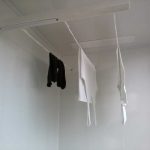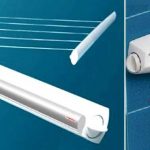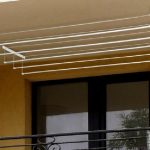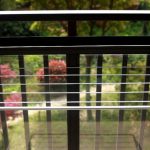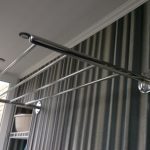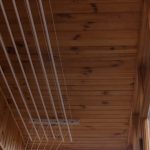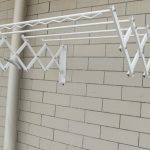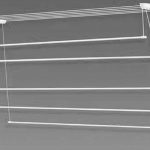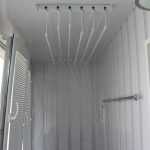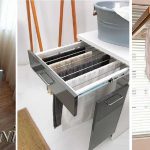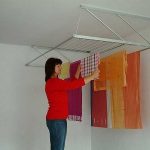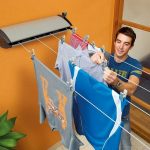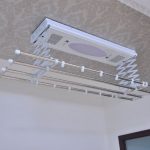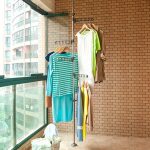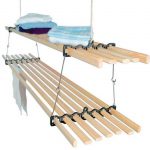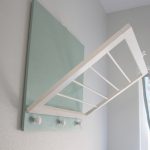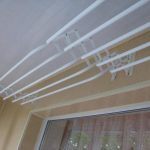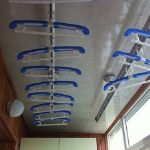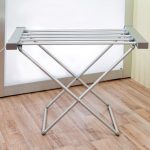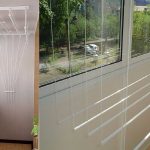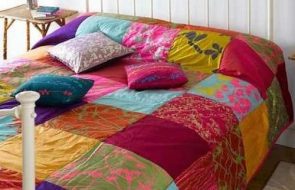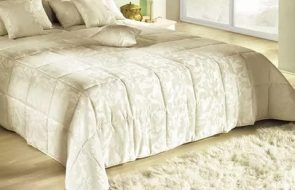Content
What is the convenience of using balcony hangers?
For any housewife, one of the common problems is drying clothes. Currently, there are various types of dryers that are convenient and practical. Depending on the model, drying of things can be done in almost any corner of the room and beyond.
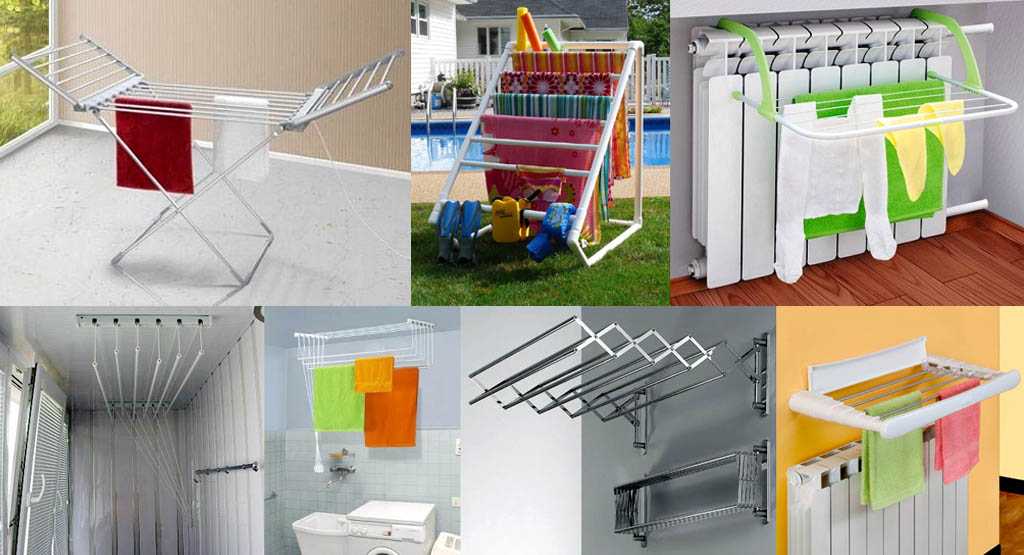
The balcony is used for drying clothes more often than other rooms. This is due to the fact that it allows you to free up other rooms, due to the fairly capacious hangers. At the same time, hangers for linen on the balcony take up minimal space. There are models with a rather attractive design on sale, as well as multifunctional, reliable and durable.
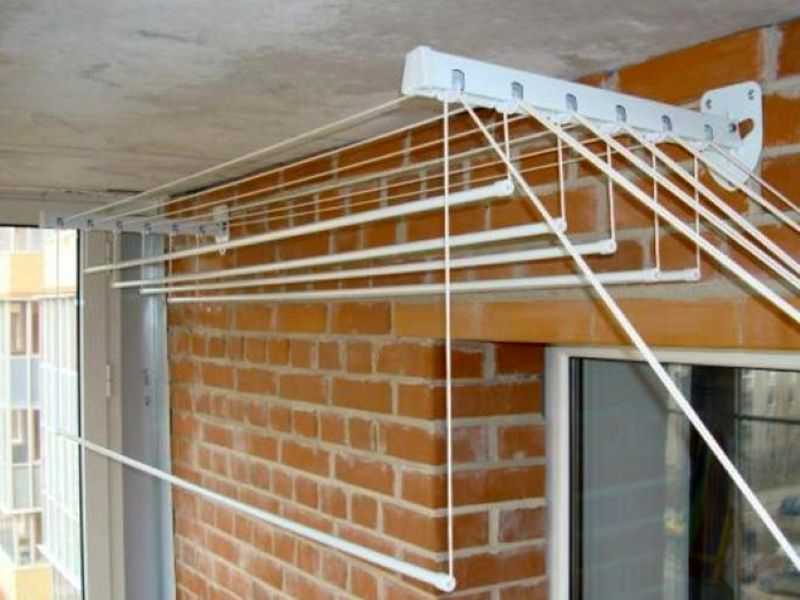
Types of dryers
Today, many devices are used to dry things. They are mainly divided by the type of installation: floor, wall and ceiling dryers.
Floor dryers
Such models of dryers are intended for indoor use and are placed directly on the floor. They are classified as mobile types due to the ability to move around the apartment and place them in almost any corner. The design of the dryers has two positions: folded and unfolded. When folded, it looks quite compact, which makes it easier to move, and also allows for storage when not needed. In addition to single-tier dryers, there can also be two-tier ones. They are equipped with regular non-slip feet, but there are models with wheels.
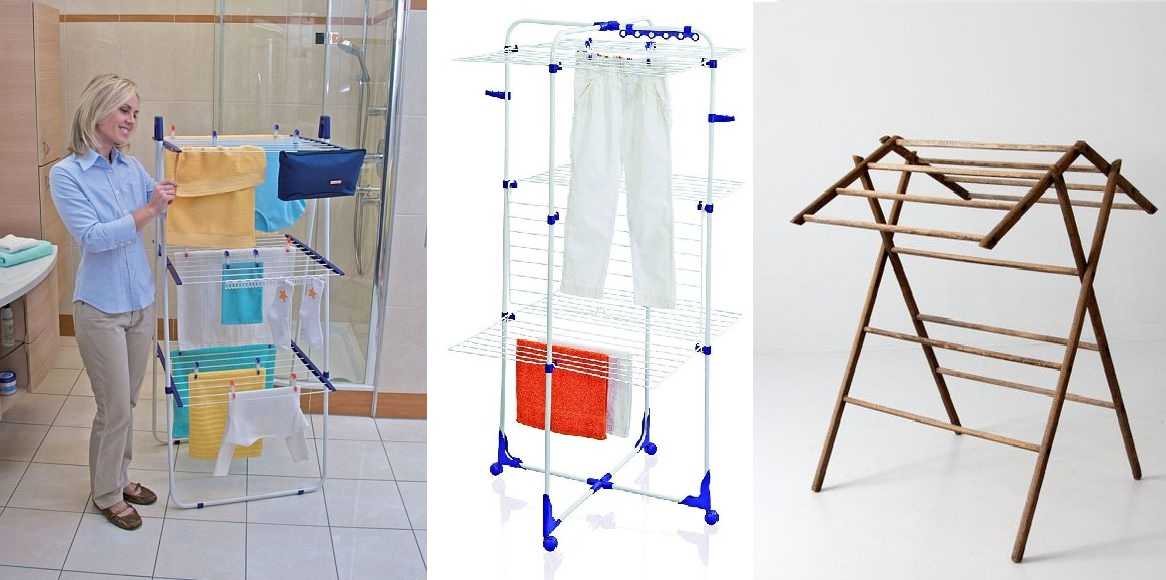
Horizontal models are mainly placed in spacious rooms and loggias. And the peculiarity of vertical ones is a multi-tiered design, which allows you to place a large amount of linen.
Depending on the overall dimensions of the work surface, not only small items can be placed, but also large ones, such as duvet covers, sheets, etc. They can withstand a weight load of up to 20 kg.
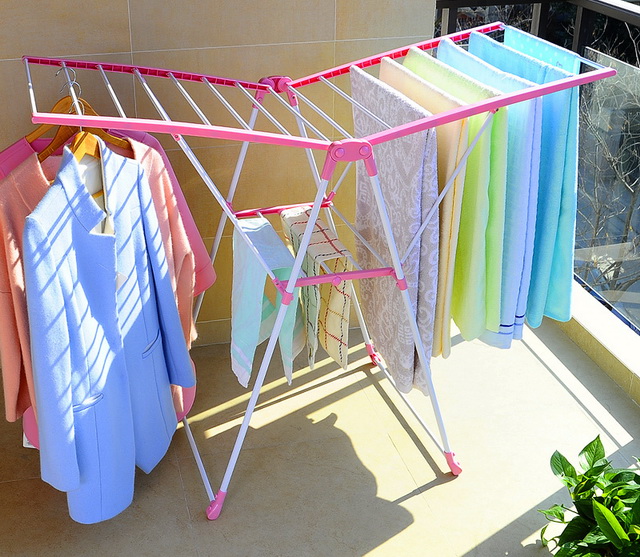
The disadvantages of floor dryers include the following:
- when unfolded they take up sufficient space;
- the need to constantly fold after use and unfold before use;
- small capacity.
The advantages of floor hangers for drying clothes are:
- in a strong and reliable design;
- mobility and compactness;
- no need for fastening.
To save space, floor clothes dryers are usually made foldable.
Wall hangers
It is one of the most popular types of dryers. Thanks to its compact and folding design, it can be used not only on the balcony, but also as a hanger for drying clothes in the bathroom. The main feature of such models is the mandatory reliable fastening to the wall. Also, do not overload the dryer with things to avoid its deformation.
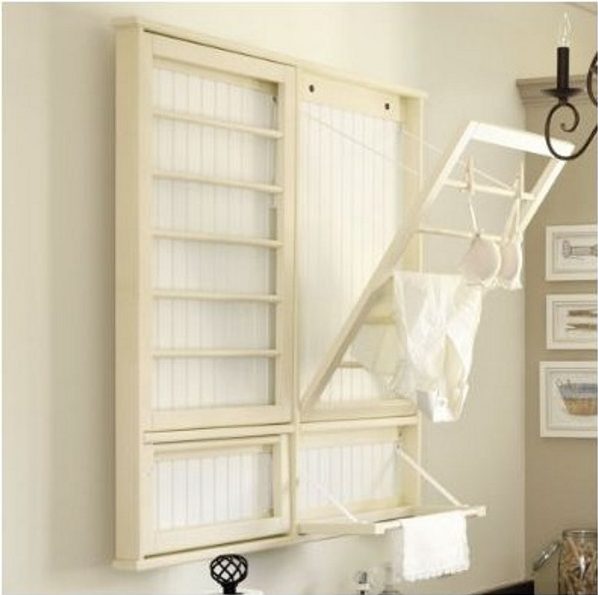
There are the following models of wall-mounted dryers: stationary, sliding and folding models.
Stationary models
They have a simple appearance and are rope dryers. The rope (cable) is stretched between opposite beams. Such dryers are considered the most reliable. Installation is carried out closer to the ceiling, so such a dryer does not cause discomfort.
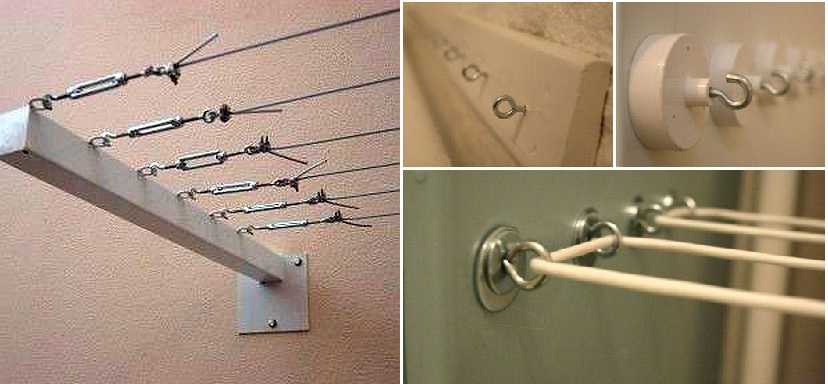
IMPORTANT! Fasten opposite beams strictly parallel to each other. The horizontal must be aligned strictly according to the level.
There are hangers with roller guides. On such models, the rope is fixed along a circular path through the rollers. They allow using the dryer with limited access. It is enough to pull the rope and move the necessary section.
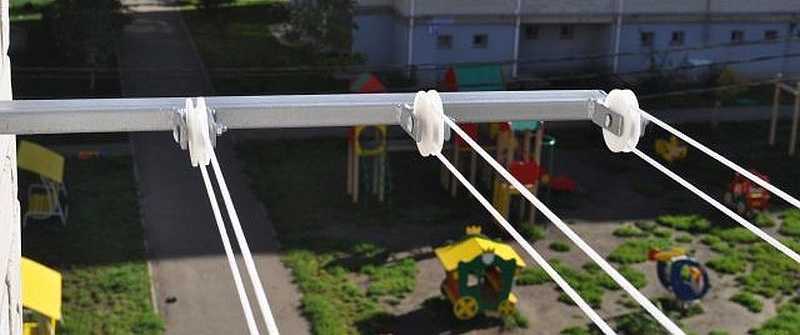
Sliding models
These models are also called "accordion", because the external design is quite similar. The peculiarity of such products is the ability to pull out or push in when not needed. Basically, the dryer consists of metal tubes, which are located on a special retractable mechanism. The length of the tubes can be from 0.5 to 1.2 meters, and withstand a load of up to 10 kg.
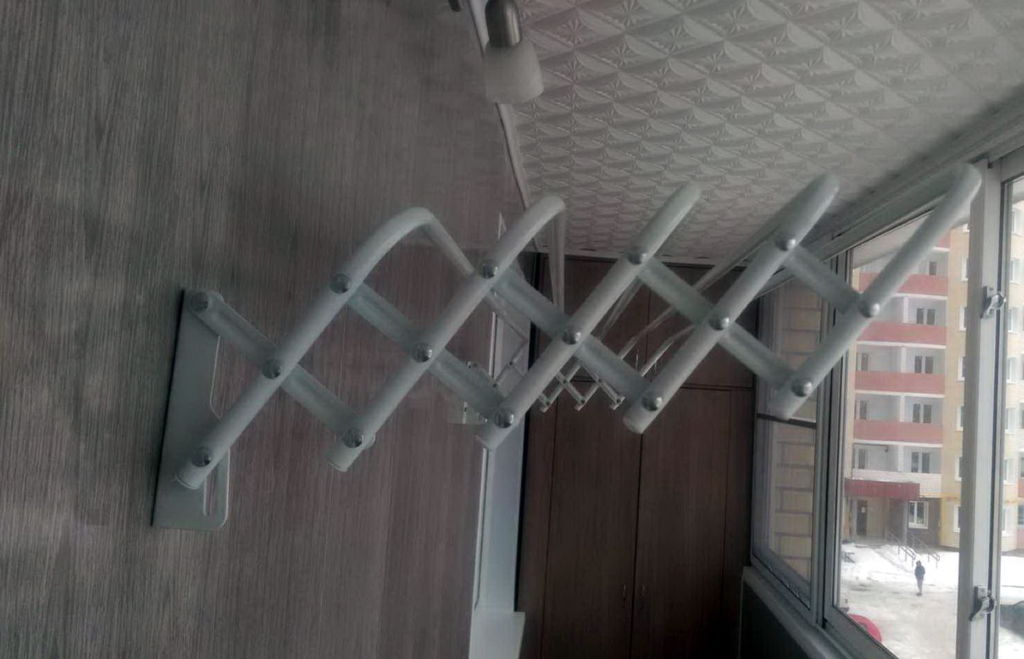
Folding models
The peculiarity of such models is that one part of the product is attached to the wall, which is fixed. The next part of the product is removable and, if necessary, is attached to the opposite wall using hooks. Also, the fixed part of the product is equipped with a drum mechanism that allows you to tighten the ropes.
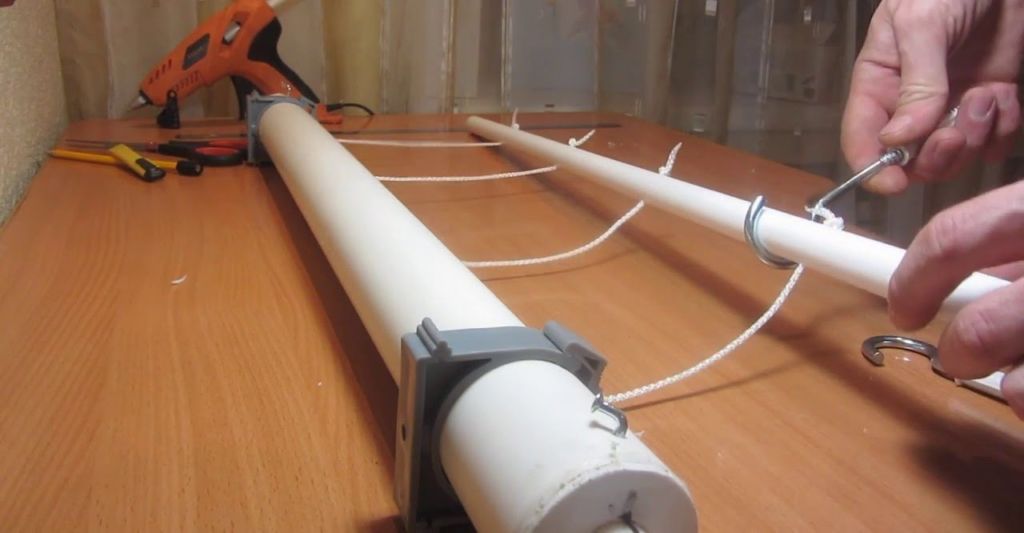
It has a number of advantages: ease of use, low price and very compact when folded.
Ceiling hangers
Ceiling models are fastened to the ceiling, thus freeing up the walls of the room. There are two types on sale: "Liana" and sliding hangers. Both designs must be securely fastened to the ceiling; it is recommended to use anchor fasteners.
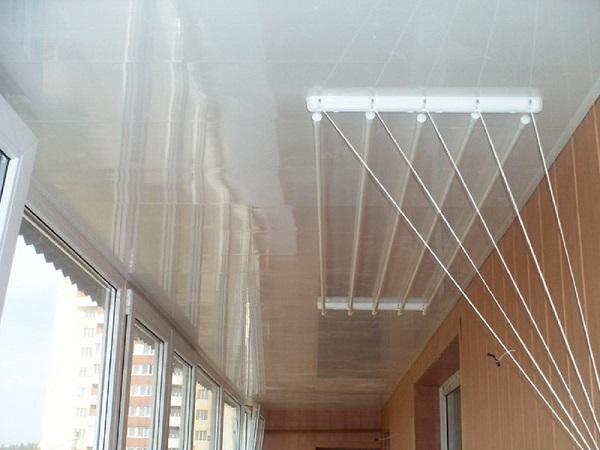
Sliding
The sliding mechanism is similar to wall sliding hangers. It differs in that the beam fasteners on which the mechanism is attached are installed on the ceiling. The sliding mechanism operates in a vertical plane, i.e. the movement occurs up/down.

The advantage of such ceiling clothes hangers on the balcony is their rather compact form, both when folded and when unfolded.
"Liana"
Functional, but at the same time easy to use dryer. As a rule, it has two fastening elements, inside which rollers are installed. Metal tubes are installed between the beams, which are fastened with ropes. The ropes pass through the rollers and are brought out to the height-fixing element.
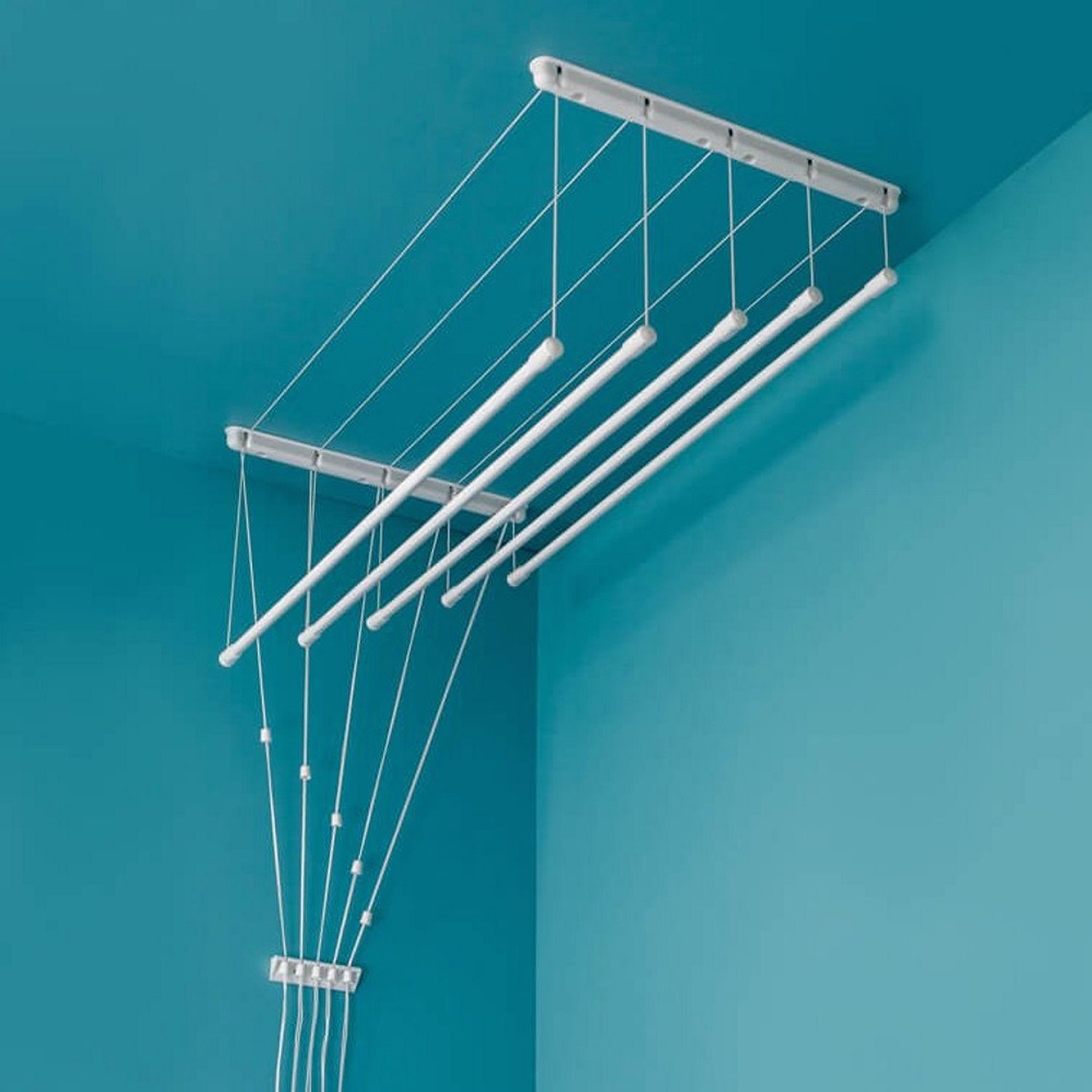
Two fixing caps are installed on the ropes. One cap is used for fixing in the folded state, and the other for the unfolded position. The fixator is installed on the side wall, so the ceiling hanger for drying clothes on the balcony should be installed closer to the wall.
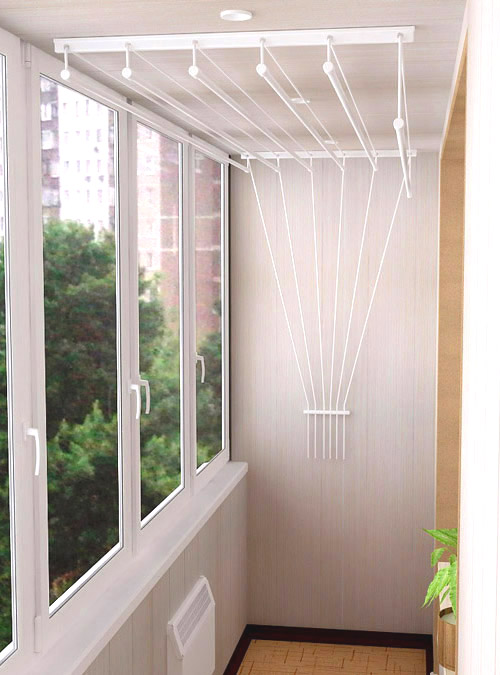
The model's special feature is the cascade arrangement of metal tubes when unfolded. This design allows for faster drying of items and is convenient to use.
IMPORTANT! The use of ceiling dryer mounts is not intended for suspended or stretch ceilings.
Outdoor hangers
It is an extremely practical device for drying clothes. It allows you to dry things in the open air. Refers to wall models, the fastening is carried out outside the room. There are models with roller guides. Also, the working surface is limited by the number of rows.
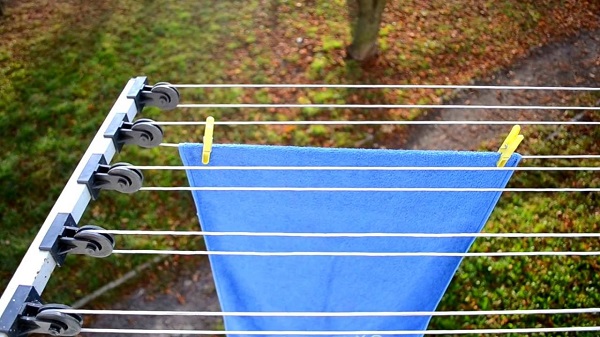
Electric models
They allow you to dry things quickly and efficiently, and also perform an antibacterial effect during drying. There are contactless and contact dryers. The principle of operation of contactless devices is the automatic activation of the heating element.
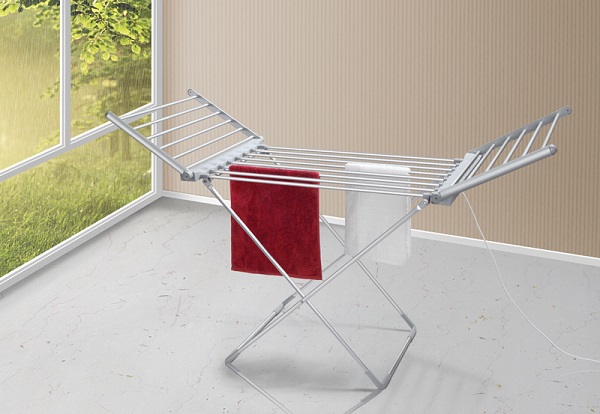
Electric models allow you to set the required temperature for drying clothes. Drying time for clothes takes much less time than other types of dryers.
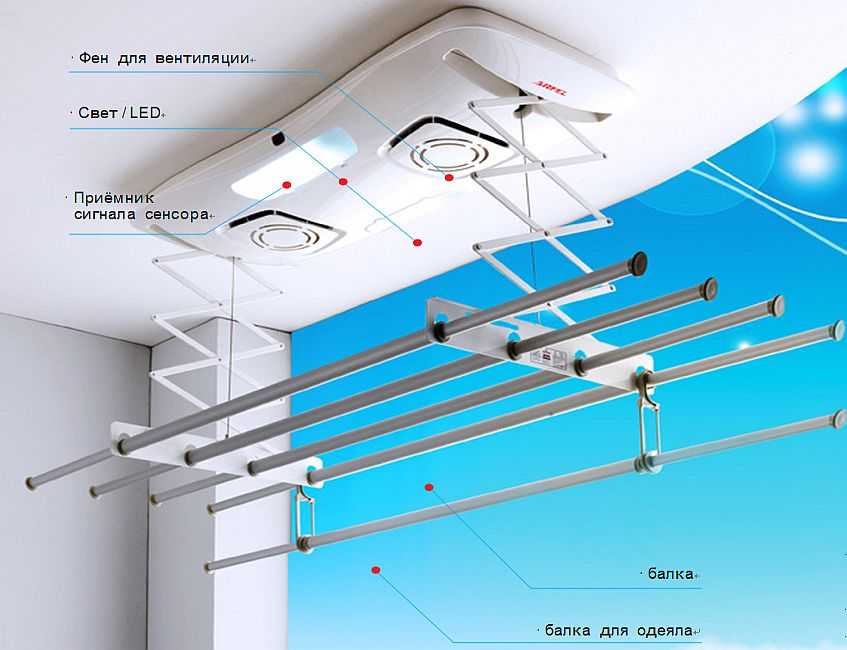
One of the negative aspects of the device is the need for power supply from the mains. It is necessary to use it with caution and observe safety precautions.
IMPORTANT! Do not use the device with damaged wiring.
Electric models, like other types of dryers, differ in the installation method. Floor dryers are most often used indoors in rooms. Wall-mounted dryers are used in the bathroom, and ceiling dryers are used on the balcony.
How to choose correctly?
Before you start choosing a dryer, you need to determine the place of operation. Also, when choosing a dryer, you need to consider the following characteristics:
- length of the working surface;
- number of rods;
- number of tiers;
- maximum load.
When choosing, pay special attention to the material of manufacture. This parameter is one of the main characteristics that affect the durability and strength of the structure. The following models exist.
- Aluminum dryers. The peculiarity of the material ensures the lightness of the structure. But with constant humidity, it is subject to oxidation over time, which leads to blackening of the surface. In this regard, modern models are covered with a layer of polymer, which allows you to get rid of the disadvantage.
May be subject to deformation under heavy loads. - Stainless steel models. Such dryers have excellent characteristics in terms of strength and stability of the structure. The disadvantage is the large weight compared to other types.
The material does not require additional coating. - Plastic products. Such dryers are designed for drying light items. Plastic models are considered budget options. Due to weak design characteristics, they are not durable.
In addition to design features, base your choice on appearance.
When choosing a dryer, be sure to pay attention to the fastening elements; they must be made with high quality and have a solid base.
How to do it yourself
Making a clothes dryer yourself is not as labor-intensive as it may seem at first glance. It is possible to make almost any model.
Rope dryer
The easiest to make and the most optimal hanger for drying clothes on the balcony. To make it, you will need: an anchor bolt with a hook, a rope (cable). The number of bolts is determined by the number of rows, one row - 2 bolts. Holes are drilled in opposite walls, then anchors are installed in them. After that, the rope is pulled. For comfortable use, the distance between the rows should be 15 cm.
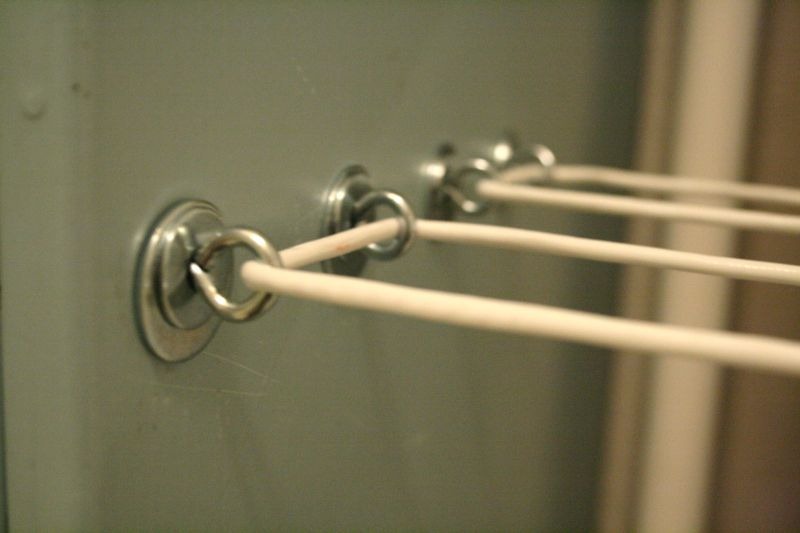
Folding wall mounted drying rack
To make it you will need: a wooden lath, wooden rods, plywood (wooden sheet), furniture hinges, handles, towel hooks, fasteners and paint. The order of work is as follows.
- The rail is divided into 4 parts so that it is possible to assemble the frame in the end.
- In two slats on the side walls, holes are drilled at the same distance from each other with a diameter slightly smaller than the diameter of the rods.
- Rods are installed into the holes so that a structure similar to a ladder is created.
- We assemble the frame. The remaining 2 slats are attached at the top and bottom.
This product will not harm the family budget, because its cost is quite affordable for most buyers. - We take plywood (base). The height of the base should exceed the size of the frame by 10-15 cm.
- Using a loop, the frame is attached to the base at a distance of 10-15 cm from the bottom.
- The product is painted and dried.
This is a durable device that will not be affected by prolonged exposure to high humidity. - On top, there are locking latches that fix the position for the unfolded and folded positions.
- Hooks for towels are attached at the bottom.
- Fastening to the wall is in progress.
As a rule, such models have a compact appearance and are well suited as hangers in the bathroom for drying clothes.
Ceiling dryer
Can be used as a clothes hanger for a balcony or for small bathrooms. To make it, you need to prepare: a wooden rail, wooden rods, rope (cable), varnish, anchor with a ring.
It is necessary to drill holes in the rail with the same pitch, then tightly install wooden rods in them, forming a frame and a working area. Rails in this design perform the function of connecting rows of rods for drying. The length of the rail and the number of holes depend on the area of the planned dryer.
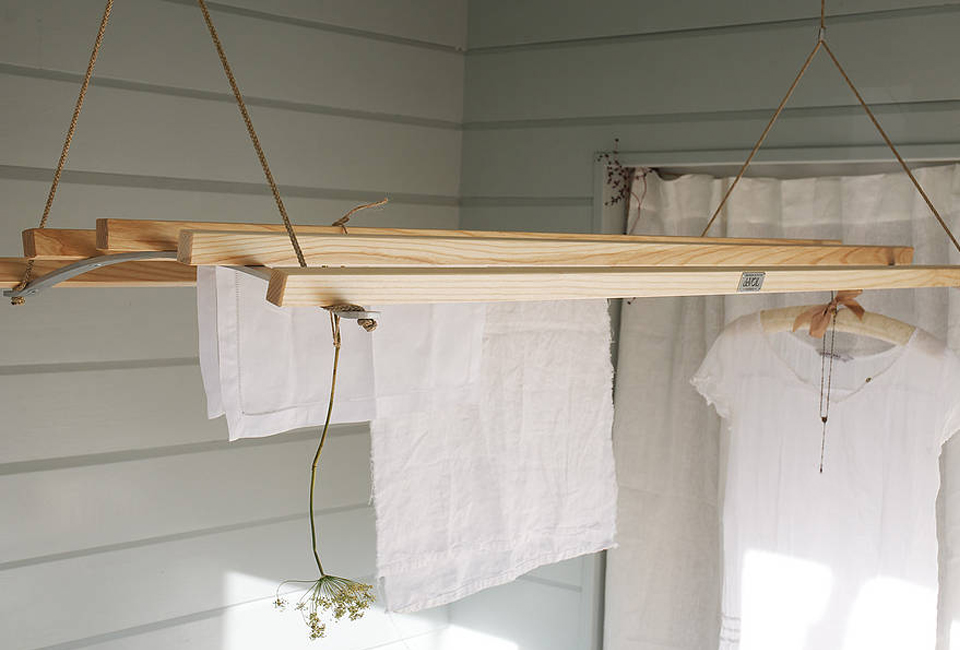
In the assembled frame, holes are made along the edges of the slats. A rope is inserted into them and a knot is tied at the ends so that the cable cannot break off. At the edges, the two resulting ropes are combined into one, and the same procedure is performed with the other end.
An anchor with a ring must be installed in the ceiling at a distance equal to the length of the working plane. Two clamps must be installed on the side wall, which will control the lifting mechanism. Then, through the first anchor, bring out the first combined rope to the second ring, and bring out the second rope there as well. After that, adjust the length of the ropes using the clamps.
